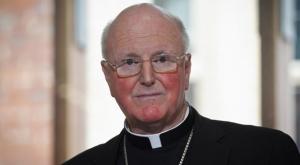When I was in seminary between 1977 and 1982 the model of pastoral ministry could be summed up in one word: facilitator. Through Rogerian counseling we facilitated people who were capable of discovering their problems and the solutions. Facilitating endless council and committee meetings allowed us to allow lay people to lead the congregation in its program of ministry. And facilitating Bible study aided lay people in their own search for the personal meaning of the text. With regard to this last act of facilitation our guidance was also necessary lest the laity lapse into naive literalism and eventually fundamentalism.
So we were facilitators of a lay led church. Has it worked out?
Not so well. This facilitation model was implicitly based on the idea that in the context of a Christian society American churches had institutional goals shared by their members, shared assumptions about human roles and relationships, and a common desire to find meaning through Christian faith. Only occasionally would a “prophetic” witness be necessary to shake people from complacency about issues of justice.
None of these assumptions is true today, and many were questionable decades ago. The United Methodist church and most other mainline denominations are riven with dissension over the appropriate role of the church in social issues such as the rights of homosexuals and abortion. At a local level churches have never fully emerged from the worship wars, and tensions over the direction and methods of congregational outreach remain high.
The rise of families with two working parents, increased mobility of families, increasing demands on the time of children and parents, and a host of other factors have significantly diminished the pool of available lay leaders. As importantly they have called into question the idea of a “lay led” church as roles filled by volunteers are increasingly the over by professional church workers. And finally a rising post-boomer unchurched generation brings neither the commitment to nor knowledge of church structures necessary for lay people to exercise leadership of a congregation in traditional ways.
And what of the search for meaning? The assumption that a transcendent God, a revealed scripture, or a holy community is necessary for a meaningful life is rapidly disappearing from American culture. We cannot assume that people will turn to religion in times of crisis, either existential or emotional. In short, the church must justify its existence in our society, not merely wait until people “come home.” Nor can we justify ourselves in terms of fellowship offered, service to the community, or our excellent provision for the psychological and social needs of different age groups. Other groups do all these things as well as Christians, and without the enormous overhead of time and cost used on so-called worship.
So in sum? Pastors cannot simply facilitate the unfolding Christian identity of a Christian community. The former is no longer understood as necessary to human flourishing, and the latter no longer has a firm sense of its distinctive purpose and direction.
May I suggest that Christian pastors need to engage an old threefold description of ministry in the name of Christ: as prophet, priest, and ruler. Pastors cannot, at this post-Christian and thus pre-Christian stage in American social evolution facilitate a community capable of carrying out these roles as a community. Instead the pastor will need to lead.
The pastor will need to guide the community into engaging God through worship and praises, knowing that the community has only the vaguest intimations of who God is and no tradition of worship and praise to inform them. (Unlike the churches of the New Testament contemporary young Americans cannot fall back on either Jewish or Greek religious traditions. They have only the vague self-worship of popular American culture. This is the reason they are attracted to “contemporary worship,” that draws on the better known concert/musical theater experience.)
The pastor will teach the community of God’s self-revelation and the gift and demand of God’s love. Again, the community has little or no knowledge of Christian tradition and scripture, or is mired in misunderstanding. They will need at least a basic framework of the distinctively Christian experience of Jesus as Christ to guide their interpretation of not only scripture, but their own religious experience.
And perhaps most importantly the pastor will need to perform the tasks that belong to governing the community in its financial and social relations with the world. This last role is most important because many who feel called to ministry find it onerous, and find that a conventional theological education may provide little preparation for it. But as the early church in its New Testament witness makes clear, management is ministry, and there may be no ministry without it.
Those called to ministry can no longer be content to facilitate in this or any of the classical tasks of ministry. They must lead, or their congregations will continue to go nowhere.











